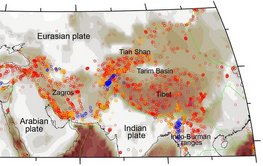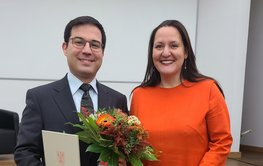On the basis of a superconducting gravimeter, the international research project aims to investigate the Alpine water balance with the Zugspitze as an example.
The head of Section 3.5 Interface Geochemistry was re-elected to the Review Board for Mineralogy, Petrology and Geochemistry. She is the only representative of the GFZ in these DFG boards.
Tree rings show record air dryness. This is shown by oxygen isotope analyses throughout Europe.
PD Dr. Wolfgang zu Castell was elected to the Administrative Committee of the German National Research and Education Network (DFN).
19.12.2023: Eruption with slow-flowing lava streams southwest of the Icelandic capital Reykjavík
Torsten Sachs, working group leader in GFZ Section 1.4 Remote Sensing and Geoinformatics, is appointed professor at TU Braunschweig.
The report "State of Global Water Resources 2022" by the World Meteorological Organization WMO has recently been published. It contains important contributions from the GFZ.
The scientist form the section 4.4 hydrology at the German Research Centre for Geosciences was re-elected as President of the EGU Division on Natural Hazards for the coming 2025-2027 term of office.
42 kilometres: This is the average thickness of the Earth's continental crust, but why is that so? What does this mean for plate tectonics?
The guest researcher from Section 2.6 received the 20,000 euro award for his Nature publication on the risks of landslides due to climate change and urban sprawl. Call for 2024 started.


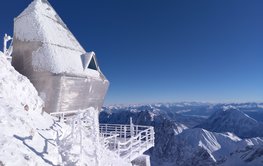
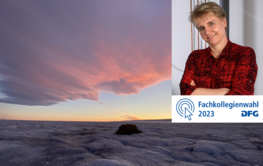
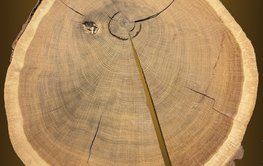
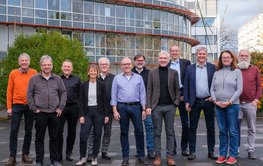
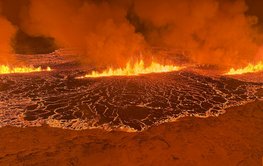
![[Translate to English:] Torsten Sachs in front of a climate station on a field](/fileadmin/_processed_/3/9/csm__TorstenSachs_bearbeitet_GS_90f1c30829.jpeg)
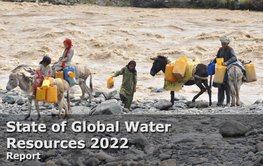
![[Translate to English:] left image flood at the Ahrtal: image from above, several houses are flooded; left image:: Heidi Kreibich;](/fileadmin/_processed_/4/4/csm_Bild2_1bdb9157ba.png)
